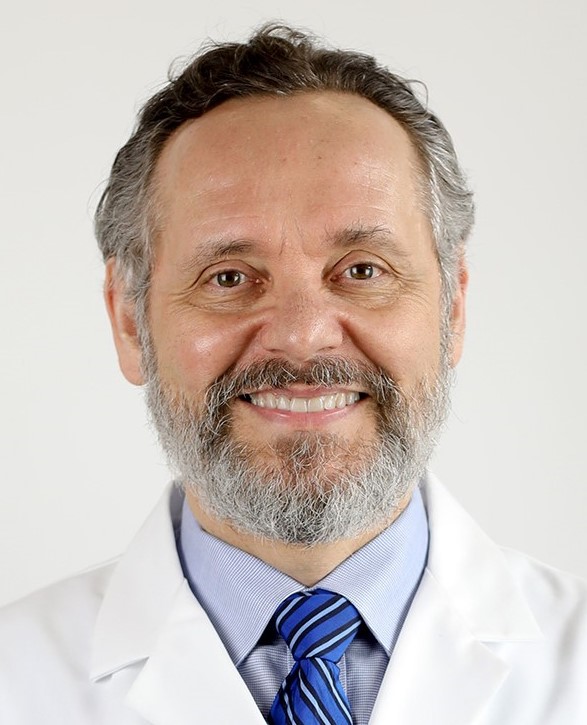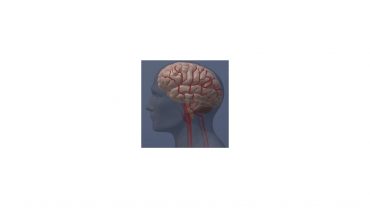Research Highlights:
- Among patients with clot-caused strokes, those treated with the newer single injection clot-busting medication tenecteplase had half as many serious complications involving bleeding into the brain compared to patients who received alteplase, the current standard medication.
- Tenecteplase is FDA-approved to treat a heart attack, however, it is not currently approved for stroke treatment. Large clinical trials are underway across the U.S. to investigate its effectiveness in improving stroke outcomes.
Embargoed until 4 a.m. CT/5 a.m. ET Thursday, Feb. 3, 2022

 (NewMediaWire) – February 03, 2022 – In an international registry, patients with clot-caused strokes (ischemic) treated with the newer generation single injection clot-busting medication tenecteplase had half as many serious complications involving bleeding into the brain compared to people who received the standard medication alteplase, according to preliminary research to be presented at the American Stroke Association’s International Stroke Conference 2022, a world premier meeting for researchers and clinicians dedicated to the science of stroke and brain health to be held in person in New Orleans and virtually, Feb. 8-11, 2022.
(NewMediaWire) – February 03, 2022 – In an international registry, patients with clot-caused strokes (ischemic) treated with the newer generation single injection clot-busting medication tenecteplase had half as many serious complications involving bleeding into the brain compared to people who received the standard medication alteplase, according to preliminary research to be presented at the American Stroke Association’s International Stroke Conference 2022, a world premier meeting for researchers and clinicians dedicated to the science of stroke and brain health to be held in person in New Orleans and virtually, Feb. 8-11, 2022.
Alteplase, the current standard of care for stroke, is administered by injection followed by an hour-long infusion and has been FDA-approved for treating clot-caused strokes since 1996. Tenecteplase is a newer generation medication administered by a single injection into a blocked blood vessel. Both medications are approved for use in dissolving clots in blocked heart arteries, and tenecteplase is sometimes used off-label to treat ischemic strokes. The latest ischemic stroke treatment guidelines from the American Heart Association recommend it might be reasonable to consider tenecteplase for ischemic stroke in select patients. Several recent clinical trials focused on ischemic stroke have directly compared alteplase and tenecteplase, however, large, Phase 3 trials are still ongoing.
“No single trial has proved that tenecteplase is superior, however, in combination, the evidence has shown that tenecteplase is at least as good as alteplase in preventing long-term disability after a stroke and is more effective in dissolving large clots,” said Steven J. Warach, M.D., Ph.D., lead author of the study and professor of neurology at the Dell Medical School at the University of Texas at Austin, medical director for Ascension hospitals in Texas and chair of Ascension’s national stroke group.
The current study examined tenecteplase use at hospitals in New Zealand, Australia and the United States. The data registry among the hospitals launched in 2021 and included data for the previous three years: from July 2018 through June 2021. Stroke centers within the participating hospital systems began using tenecteplase after July 2018, and some administer only alteplase. All patients treated with thrombolytics (medications to dissolve blood clots) were included, enabling researchers to have a tenecteplase-treated group and an alteplase-treated group for comparison.
“The effects of a medicine used in real world clinical practice is not always the same as those observed in the controlled environment of clinical trials. The goal of our analysis was to evaluate whether tenecteplase is as safe as alteplase when used to treat stroke patients in routine clinical practice,” Warach said.
The researchers analyzed data on 6,429 patients (average age of 70 years; 48.7% female) who received alteplase and 1,462 (average age of 73 years; 44.1% female) who received tenecteplase. On average, patients in both groups had experienced moderate ischemic strokes.
The patients who received tenecteplase had slightly worse scores on the National Institutes of Health Stroke Scale (NIHSS) compared to the patients who received alteplase. (NIHSS is the international standard used to measure stroke severity.) Patients who received tenecteplase were also more likely to undergo a minimally invasive procedure to mechanically remove a large clot in the brain (thrombectomy). Thrombectomy is needed for many stroke patients who have larger artery blockages and more severe strokes. Researchers noted the difference in outcomes between the two patient groups was anticipated because some stroke centers only gave tenecteplase to patients with large clots after 2018, when clinical trials confirmed that tenecteplase was better than alteplase in those patients.
To evaluate the safety of tenecteplase, researchers compared the incidence of symptomatic intracranial hemorrhage after treatment with alteplase vs. tenecteplase. (sICH is bleeding within the brain that worsened the patient’s NIHSS score by at least 4 points.)
“Thrombolysis treatment involves the administration of powerful blood-thinning medication, and bleeding into the brain is the most serious side effect. Intracranial hemorrhage information was available for all our study patients since it is routinely recorded by all stroke centers,” Warach said.
The results were adjusted for age, severity of stroke and the need for thrombectomy. The analysis found:
- The sICH rate was 43% lower among patients who received tenecteplase (3.71% in the alteplase group, and 2.13% in the tenecteplase group);
- Among patients who did not undergo thrombectomy, the sICH rate was 42% lower among those who received tenecteplase (3% for the alteplase group, and 1.74% for the tenecteplase group); and
- Among patients who required thrombectomy, the sICH rate was 59% lower for patients who received tenecteplase (6.8% for the alteplase group, and 2.8% for the tenecteplase group).
“The significantly lower rates of sICH surprised us. Our finding that tenecteplase had about half the risk of sICH when compared with alteplase in routine clinical practice provides reassurance that tenecteplase does not result in harmful bleeding when used routinely for stroke treatment,” Warach said.
“Our data show no safety concerns when tenecteplase is used in routine practice, however, safety outcome is only one aspect to consider. Functional outcomes of patients – incidence of disability from stroke and recovery time – are also important. The registry does include data on patients’ recovery and disability outcomes; however, we have not yet performed an analysis of those outcomes. A number of clinical trials in progress comparing tenecteplase to alteplase are assessing whether tenecteplase improves the chances of functional recovery. Clinicians may elect to wait until results of these trials are published, however, our results provide reassurance that routine tenecteplase use is safe,” Warach said.
Results from this retrospective, observational study cannot prove a cause-and-effect relationship between the type of clot-buster used and the risk of intracranial hemorrhage. In addition, the clinicians assessing the patients are aware of the treatments received, which may introduce bias in the results. Although many more patients received alteplase, the analysis adjusted for this imbalance.
The registry is continuing to add data on more patients from more stroke centers with the goal of addressing additional questions about whether tenecteplase treatment leads to quicker treatment initiation and better recovery from ischemic stroke.
Co-authors are Annemarei Ranta, M.D., Ph.D.; Shlee S. Song, M.D.; Daniel Gibson, M.D.; Adam Wallace, M.D.; James Beharry, M.D.; Christopher Bladin, M.D., Ph.D. ; Timothy J. Kleinig, M.D., Ph.D. ; Jackson Harvey, M.D.; Vinodh T. Doss, D.O.; Ruth Marescalco, R.N., B.S.N., S.C.R.N.; John N. Fink, M.D.; Joosup Kim, B.Med.Sci., Ph.D.; Dominique A. Cadilhac, B.N., M.P.H., Ph.D.; Duncan Wilson, M.D., Ph.D.; Sonia Figueroa, B.A.; Marco Antonio Pech, B.S.N., P.H.N., R.N.-B.C., S.C.R.N.; Marissa Castro, B.A., M.H.L.; Daniel Sahlein, M.D.; E. Frank Lafranchise, M.D.; Justin Sandall, D.O.; Kaiz Asif, M.D.; Scott Ryan Geraghty, M.D.; Paul Anthony Cullis, M.D.; Tim Malisch, M.D.; Terry Allen Neill Jr., M.D.; Marian P. LaMonte, M.D.; Bruce Campbell, M.D., Ph.D.; Laurie B. Paletz, B.S.N., P.H.N., R.N., B.C., S.C.R.N.; and Teddy Y. Wu, M.D., Ph.D. The list of authors’ disclosures is available in the abstract.
No funding sources were reported for this study.
Statements and conclusions of studies that are presented at the American Stroke Association and American Heart Association’s scientific meetings are solely those of the study authors and do not necessarily reflect the Association’s policy or position. The Association makes no representation or guarantee as to their accuracy or reliability. Abstracts presented at the Association’s scientific meetings are not peer-reviewed, rather, they are curated by independent review panels and are considered based on the potential to add to the diversity of scientific issues and views discussed at the meeting. The findings are considered preliminary until published as a full manuscript in a peer-reviewed scientific journal.
The Association receives funding primarily from individuals; foundations and corporations (including pharmaceutical, device manufacturers and other companies) also make donations and fund specific Association programs and events. The Association has strict policies to prevent these relationships from influencing the science content. Revenues from pharmaceutical and biotech companies, device manufacturers and health insurance providers and the Association’s overall financial information are available here.
Additional Resources:
The American Stroke Association’s International Stroke Conference (ISC) is the world’s premier meeting dedicated to the science and treatment of cerebrovascular disease. ISC 2022 will be held in person in New Orleans and virtually, Feb. 8-11, 2022. The three-day conference will feature more than 1,500 compelling presentations in 17 categories that emphasize basic, clinical and translational sciences as research evolves toward a better understanding of stroke pathophysiology with the goal of developing more effective therapies. Engage in the International Stroke Conference on social media via #ISC22.
About the American Stroke Association
The American Stroke Association is devoted to saving people from stroke — the No. 2 cause of death in the world and a leading cause of serious disability. We team with millions of volunteers to fund innovative research, fight for stronger public health policies and provide lifesaving tools and information to prevent and treat stroke. The Dallas-based association officially launched in 1998 as a division of the American Heart Association. Connect with us on stroke.org, Facebook, Twitter or by calling 1-888-4STROKE.
###
For Media Inquiries and AHA Expert Perspective:
AHA Communications & Media Relations in Dallas: 214-706-1173; ahacommunications@heart.org
Karen Astle: 214-706-1392; karen.astle@heart.org
For Public Inquiries: 1-800-AHA-USA1 (242-8721)
heart.org and stroke.org
